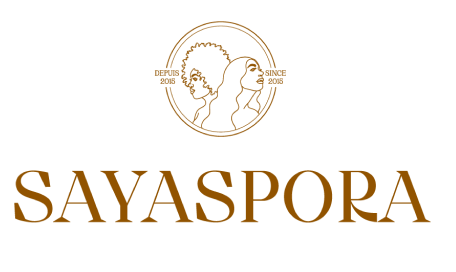May 18, 2021

By Houda Kerkadi
Some time ago, I attended an online bilingual writing workshop catered to diasporic communities. In the first 5 minutes, the writing prompt/question “Is your tongue colonized?” goes up on the shared screen, and the weight of the question is enough to take up my attention for the remainder of the workshop and some weeks after that.
It took me a while to pinpoint exactly what bothered me about this question. Was it the simplicity of putting language on the same ‘level’ of colonization for diasporic kids or was I uncomfortable by what a colonized tongue meant? Not to mention how it echoed years of being asked in high school in the Gulf, ‘Why do you speak the language of colonization,’ as an Algerian who spoke French.
Allow me to provide some context…I am not arguing that the reason Algerians speak French is not due to colonization, and the fact that we continue to speak it is an effect of said colonization. However, what I am arguing is that our speaking of it does not exist in a privileged binary of ‘colonized vs. decolonized’…especially for those living in the diaspora.
A couple of months back, I sat for 15 minutes with my white french co-worker in the office in Montreal as she tried to explain to my boss what the word ‘wesh’ (‘what’ in Algerian Arabic) means. She spoke to its popularity in French slang and how it was considered a common greeting. This incident alone perfectly encapsulates the current dynamics of local french, as the language has become a mosaic of Arabic and in general African words, all blended to form a local slang.
In Des chiffres et des Lettres, a popular game show in France (if you know you know), comedian and filmmaker Jean-Pascal Zadi, tried to spell out ‘Haagrah’ (‘To menace’ in Algerian Arabic) when asked to rearrange scrambled letters. While hilarious and probably satirical, it too speaks to the influence of darija (Algerian Arabic) on French, as Zadi defended his choice with an “it’s not my fault L’Academie (principal French council for matters on the French language) are behind on the times.”
While I completely understand the counterargument – that this is not formal french and it is only slang, ‘un verlan’ – its cultural impact is significant, and has trickled down to the streets of Montreal where you can hear Algerian-Arabic slang mixed with French in downtown Montreal high schools. Similarly, it can be found in music, films, social media discourse, as it holds a noticeable presence in Francophone majority countries.
Its pervasiveness speaks to one fact, that the current dynamics of French are no longer the same as they used to be. When you walk down a street in Montreal and hear one white kid describing his exams as ‘wesh c’est une hagra’ to another white kid, there is a clear shift in power dynamics.
This language and, in turn, a white-francophone culture that was once imposed on us is one we have effectively subverted to adapt to our own cultures. This french, however informal, is one we have adapted to us, to mold to our cultures and roots. Through our words, we insert – and assert – our presence in the francophone white-dominant context both physically and linguistically.
Using French to reclaim our African roots isn’t a phenomenon that only exists in popular culture, this is also seen in post-colonization literature produced by African authors seeking to re-write narratives of colonization and assert their presence on an academic scene, like the work of Édouard Glissant, Aime Cesaire, and Kateb Yacine. This magazine itself is a form of reclaiming African narratives using the language of a colonizer. Language is a weapon that we can use to layout a new landscape, one that solidifies the presence of Africans and ensures our voices will not be erased from narratives.
I ironically write this piece as an anglophone Algerian, who uses her French once in a blue moon; I was still raised on three languages. I never had the luxury of outlining myself only through my mother tongue, Arabic. While my devotion continues to be to my darija, I have found authenticity in French and English equally since growing up in the diaspora means taking their languages to assert who you are and where you come from.
As Kateb Yacine once wrote, “I write in French to tell the French that I am not French…. the French language was and still is a trophy of war.”

Houda Kerkadi
Writer
Images credits:
Image courtesy of @zaravisuals
Similar articles

September 18, 2021




